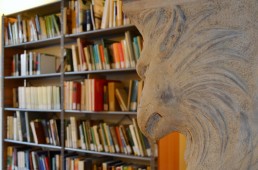DiSSGeA Visiting Professor “Mobility and the Humanities” 2021
DiSSGeA Visiting Professor “Mobility and the Humanities”2021 CALL FOR APPLICATIONS
From 10.11.2020 to 15.01.2021
In the framework of the Department of Excellence Project “Mobility and the Humanities”, financed by the Italian Ministry of Education, University and Research, the Department DiSSGeA (hereinafter referred to as “the Department”) has launched the Visiting Professor “Mobility and the Humanities” 2021 Call for Applications. The initiative provides the assignment of positions as Visiting Professor to professors and researchers from international universities or research centres.
The present call is addressed to professors and researchers with proven teaching experience, who are permanent faculty members in European and non-European universities and research centres. Applicants must spend a period of approximately three (3) months at the Department, in order to lecture official courses at the Master level (second cycle degree) with a topic on “Mobility and the Humanities.”
The duration of the courses will be 42 hours and their programmes shall focus on
- Transport History
- History of Tourism
- Migrations in World History
- Digital Philology.
The selected Visiting Professors shall also contribute to the implementation of the “Mobilab” digital laboratory for the study of mobility and to the activities of the Centre for Advanced Studies on “Mobility and the Humanities” and their respective research groups.
Deadline for submission: January 15th 2021, 1.00pm CEST (Central European Summer Time) by using the (online) Application form.
Applications must be submitted by e-mail to international.dissgea@unipd.it with the subject Visiting Professor “Mobility and the Humanities.” Incomplete or incorrect applications will be excluded from the selection procedure.

Apply for Scholarships for Mobility Studies 2020/21
Apply for Scholarships for Mobility Studies
In the framework of the initiatives aiming at promoting its educational activity, the Department of Historical and Geographical Sciences and the Ancient World of the University of Padua, ANNOUNCES a selection procedure to assign 5 (five) two-years scholarships (amount: 9.000 euros per bursary) for especially gifted students who enroll at the Master’s Degree in Historical Sciences – Curriculum Mobility Studies.

Deadline: 31 August 2020
Doing Digital Humanities @ DiSSGeA - Valorizzazione e comunicazione digitale del patrimonio
Register in advance for this meeting at
Marriage and Mobility in Early Modern Venice
Marriage and Mobility in Early Modern Venice (late 16th-18th Centuries) – Processetti
Postdoctoral project supervised by Jean-François Chauvard (Université Paris 1 Panthéon-Sorbonne) and Walter Panciera (Sept 2020-Aug 2022)
Teresa Bernardi
The research project explores the role played by social ties within processes of migrant identification during the early modern period. The historical and geographical background of this study are the cosmopolitan city of Venice and its domains during the seventeenth century. The research is primarily based on a specific archival source: the so called processetti matrimoniali. This documentation consists in pre-matrimonial enquiries aimed at attesting the marital status, or widowhood, of foreigners and other ‘mobile people’ who wanted to get married in Venice. The project’s hypothesis is that relying on gender as a lens of analysis, along with focusing deeply on women’s mobility, may challenge some historiographical assumptions about the very phenomena of mobility and identification: respectively, the presumed clear-cut between short and long-distance mobility; and the assumed replacement of orality – in terms of reputation and social networks – by written documents.
This research is part of a bigger international programme funded by the French National Research Agency (ANR) and supervised by Prof. Jean-François Chauvard. The research group’s overall objective is to explore the relation between marriage and human mobility both from a qualitative and a quantitative perspective. It does so by comparing the city of Venice, the Greek World under the Venetian dominion and other cities of the Italian peninsula. Moreover, this programme will pursue the digitalization of a vast portion of the processetti in the context of the virtual research environment Geovistory (http://geovistory.com/). In addition to the digital humanities, this project’s research interests thus span various fields of social, legal, and cultural history.


Doing digital humanities @ DiSSGeA 2020/21
Doing digital humanities@ DiSSGeA 2020/21
Dal 13.10.2020 al 11.05.2021
dal 13 ottobre 2020 all’11 maggio 2021 si svolgerà, nell’ambito delle iniziative del MobiLab, il ciclo di seminari Doing digital humanities @ DiSSGeA 2020/2021.
I seminari si terranno il secondo martedì del mese dalle 16.30 alle 17.30 in modalità telematica via Zoom previa registrazione.
Summer School Mobility & Humanities 2020

















